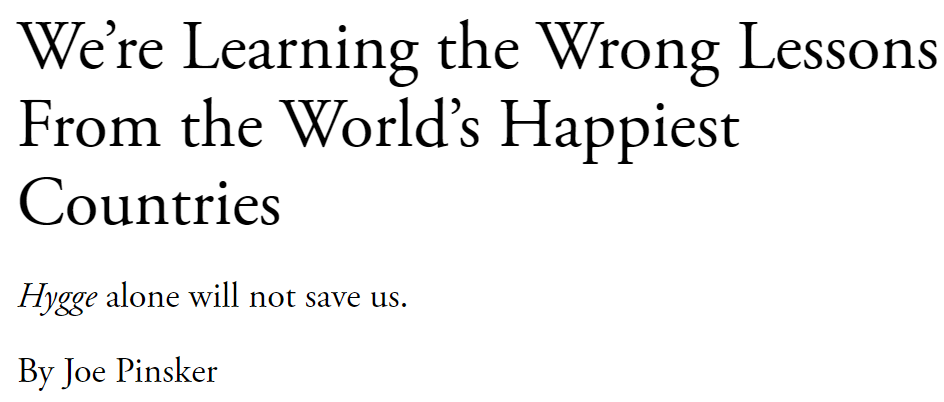I have shared AMPLE examples for teaching correlations. Because I've got you, boo. Like, I have shared days' worth of lecture material with you, my people.
I am adding one more example. I have used this example in my positive psychology course for years, and it really illustrates what can happen en masse when marketing departments and less-savory pop-psych elements try to establish causal relationships with features (stereotypes?) of happy countries and individuals' subjective well-being. I like this one because it is math-free, UG-accessible, and not terribly long.
Joe Pinsker, writing for the Atlantic, argues that...
 |
| https://www.theatlantic.com/family/archive/2021/06/worlds-happiest-countries-denmark-finland-norway/619299/ |
TL;DR: Just because Northern European nations consistently score the highest on global happiness data doesn't mean that haphazardly adopting practices from those countries will make you happy. Correlation doesn't equal causation. Here is the happiness data in question.
It is behind a paywall, but I will share some of the highlights. Email me if you want the PDF.
Here are some of the highlights, tho:
So, marketers try to make people think they will be happy if they adopt random aspects of Northern European life:
Yoooo...correlation doesn't equal causation. Adopting supposedly Nordic decorations and qualities doesn't mean you will be as happy as a Northern European. But that is what
FINALLY...the article quotes top-notch psychologist Elizabeth Dunn.





Comments
Post a Comment